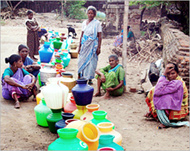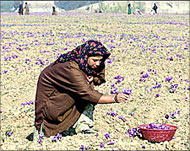Critics warn India over river linking
Two Indian states have agreed to start the first stage of a $200 billion plan to link the country’s rivers, a scheme condemned as a recipe for ecological disaster and violence from those it will make homeless.

The deal between Uttar Pradesh and Madhya Pradesh is a major step towards a project first mooted by the British a century ago, but many details remain to be worked out before work on even the first canal and dams can start.
“It would be wrong to promise early results,” Prime Minister Manmohan Singh said at last week’s signing in New Delhi.
The first stage involves building a 230km canal diverting water from the Ken river to the Betwa in northern Madhya Pradesh and building a dam and small hydroelectric plant in the middle of the Panna Tiger Reserve, one of the most successful.
More than 8500 farmers and villagers will be forced from their homes just for the dam, and an unknown number by the canal.
Backers say river linking, which will eventually see 30 connections across India, will provide irrigation, improve crop production, increase drinking water, provide hydroelectric power and help alleviate floods and droughts.
“It’s a bold and historic initiative that will change the country’s water management paradigm,” said former prime minister Atal Behari Vajpayee, whose government revived the programme.
Untold damage
 |
|
Critics say river linking will |
Almost three quarters of farmland is not irrigated, hostage to the annual monsoon as the major source of water.
But critics say river linking will create untold damage, undermine food security and create widespread civil unrest.
“It’s really about spending money,” said well-known activist Vandana Shiva, of the Research Foundation for Science, Technology and Ecology, a non-governmental organisation which says it has carried out its own detailed study and is helping to organise grassroots opposition to the Ken-Betwa project.
“The Ken-Betwa link is a pilot to show the positiveness of river linking, but it is going to show the negativeness,” said Shiva, who served on Vajpayee’s river linking committee.
Flawed science
Shiva said the project was based on flawed science and was being driven by vested interests that would gain from the huge construction projects and the shift towards water-intensive money crops, such as sugarcane and fruit and vegetables for export.
 |
|
NGOs say the project is driven by |
“The dam inside the Panna park will wipe out the core of the park,” she added.
She says the Ken and Betwa rise from the same mountains and will therefore be high or low at the same time, making diverting water from the Ken damaging during floods and impossible during droughts.
She also says the affected area, Bundelkand, is already well served by an ancient system of man-made lakes and water tanks, adding the project would take control of water away from local communities and put it into the hands of the central authorities.
“That will be one more reason of ecological breakdown, more corruption and more political instability,” Shiva said.
Protests
Local villagers, farmers and activists, including former members of the state assembly, have begun organising opposition to the project and have already staged protest marches.
|
“If every river link is going to mean killing and shooting, then you will have civil war in this country” |
Shiva warned that local opposition could lead to violence if the government continued to ignore it, similar to peasant-based rebellions in other areas by rebels known as Naxalites.
“Here are people stating their grievances. They are not being listened to and you are going to push them to the kind of situation you are trying to overcome in the Naxalite areas,” she said. “They will fight. They’ll fight.”
She also warned that police would have to fire to disperse protesters, as they did during a rally over water in the western desert state of Rajasthan this year.
“If every river link is going to mean killing and shooting, then you will have civil war in this country.”